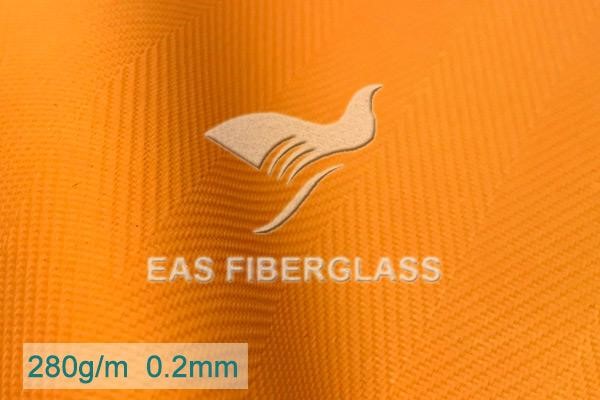Similarities and Differences Between PU, Acrylic, and PVC Coated Fiberglass Fabrics

Similarities Between PU, Acrylic, and PVC Coated Fiberglass Fabrics
1. Base Material:
- All three types of coated fabrics use fiberglass cloth as the base material, offering inherent heat resistance, strength, and durability.
2. Protective Properties:
- Each type of coating—PU (Polyurethane), Acrylic, and PVC (Polyvinyl Chloride)—enhances the fiberglass fabric’s resistance to environmental factors such as flames, chemicals, and abrasion.
- They all provide a barrier that helps prevent fiber fraying and improves the fabric’s handling properties.
3. Versatility:
- All coatings can be customized in terms of thickness, weight, and color, allowing these fabrics to be tailored for specific applications across various industries.
4. Common Applications:
- These coated fabrics are widely used in industrial applications such as welding blankets, insulation, protective covers, and heat shields, where durability and resistance to harsh conditions are essential.
Differences Between PU, Acrylic, and PVC Coated Fiberglass Fabrics
1. Coating Composition:
- PU Coating:
- Made from polyurethane, PU-coated fiberglass fabric is known for its flexibility, abrasion resistance, and relatively high tensile strength.
- Acrylic Coating:
- Composed of flame-retardant acrylic, this coating is valued for its ability to resist welding sparks, flames, and fraying while being lightweight and cost-effective.
- PVC Coating:
- Made from polyvinyl chloride, PVC-coated fiberglass fabric offers excellent chemical resistance, waterproofing, and a smooth, often glossy finish.
2. Thermal Resistance:
- PU Coating:
- PU coatings provide moderate thermal resistance, suitable for applications where flexibility and wear resistance are critical.
- Acrylic Coating:
- Offers good thermal resistance, particularly in applications involving direct flame or welding sparks.
- PVC Coating:
- PVC provides lower thermal resistance compared to PU and acrylic, making it less suitable for high-temperature applications but excellent for environments requiring chemical or moisture resistance.
3. Flexibility and Handle:
- PU Coating:
- PU-coated fabrics are generally more flexible and easier to handle, making them ideal for applications requiring a softer, more pliable material.
- Acrylic Coating:
- Acrylic coatings can range from slightly rigid to moderately flexible, depending on the coating thickness.
- PVC Coating:
- PVC-coated fabrics tend to be stiffer and less flexible, particularly with heavier coatings, which can limit their use in applications requiring high flexibility.
4. Waterproofing and Chemical Resistance:
- PU Coating:
- Offers decent water resistance and moderate chemical resistance, making it versatile for various industrial uses.
- Acrylic Coating:
- Provides some water resistance but is less effective than PU or PVC in this regard. It is not as chemically resistant as PVC.
- PVC Coating:
- Excellent waterproofing and chemical resistance, making it ideal for outdoor and chemically aggressive environments.
5. Cost and Availability:
- PU Coating:
- Generally, PU-coated fabrics are more expensive than acrylic but can be less expensive than high-quality PVC coatings, depending on the application.
- Acrylic Coating:
- Typically the most cost-effective option among the three, especially for applications requiring basic flame and fray resistance.
- PVC Coating:
- PVC coatings can be more expensive due to their superior chemical and waterproofing properties, particularly in high-demand or specialized applications.
6. Typical Applications:
- PU Coating:
- Used in protective clothing, flexible insulation, and applications requiring a balance of heat resistance and flexibility.
- Acrylic Coating:
- Commonly used in welding blankets, light insulation, and covers where cost-effectiveness and flame resistance are priorities.
- PVC Coating:
- Preferred in environments requiring robust chemical resistance, waterproofing, and durability, such as tarpaulins, outdoor covers, and chemical handling environments.
EAS Fiberglass Co., Ltd is a professional fiberglass products supplier and provides comprehensive and effective material industrial solutions covering the market of high-performance FRP, highly effective temperature insulation, and highly convenient construction. Nowadays, EAS owns various product lines of fiberglass yarn forming, woven fabrics, fabric coating/lamination, FRP, etc. The complete product lines enable EAS to master the quality control and products market competitive. Taking this advantage involves us in many projects and enhances brand promotion. Certified ISO9001-2008 equips EAS staff and management with a more professional operation. Certification of test reports for products is done by third-party laboratories such as SGS, TUV, DNV, etc.
